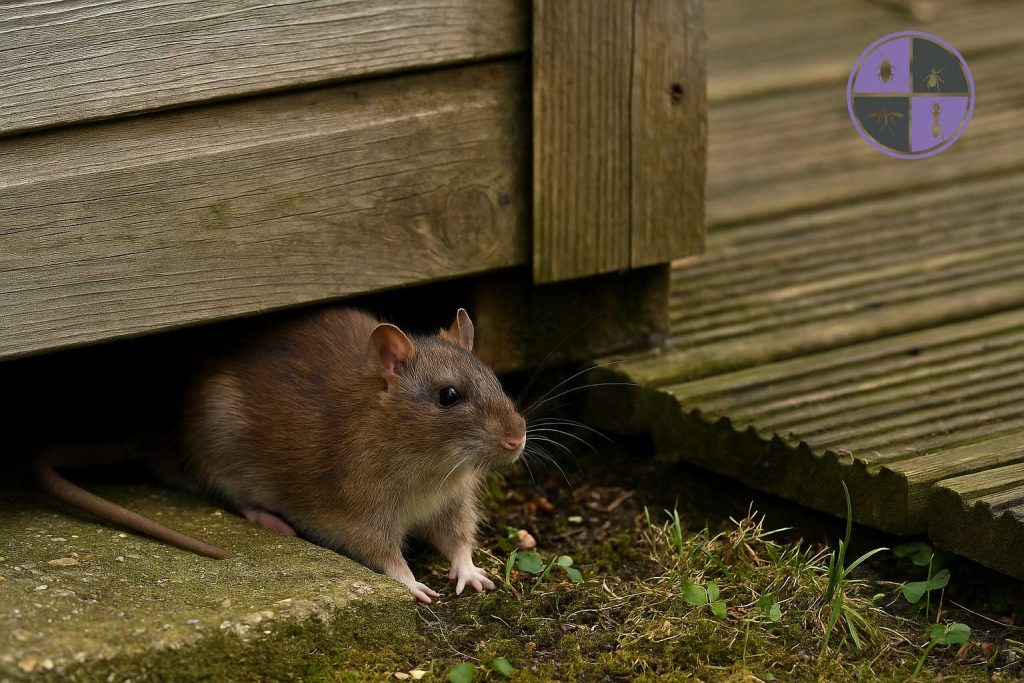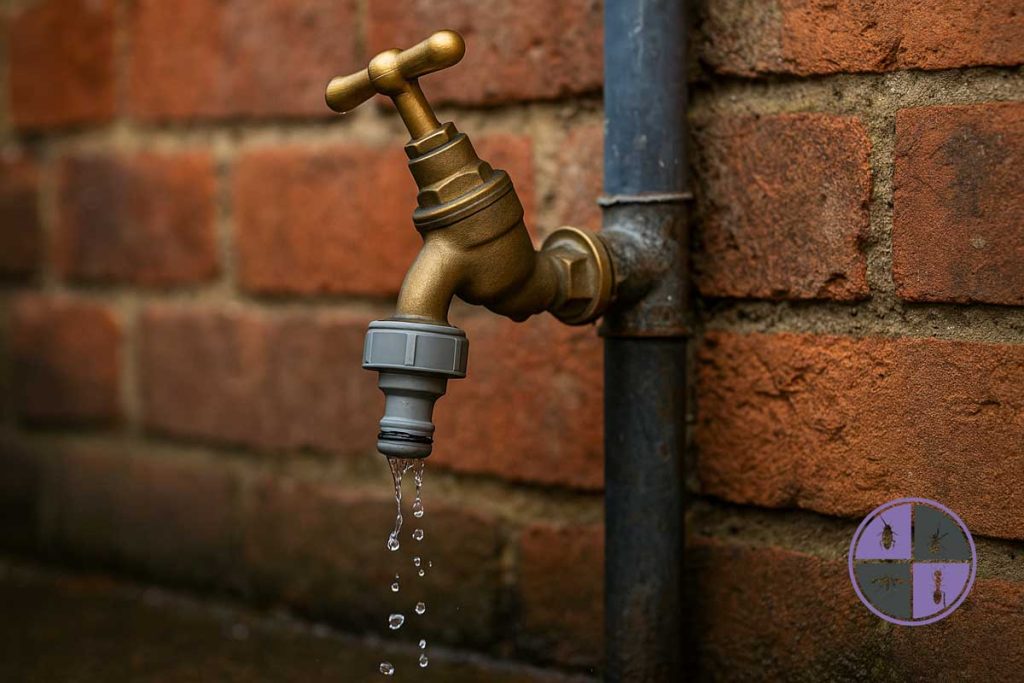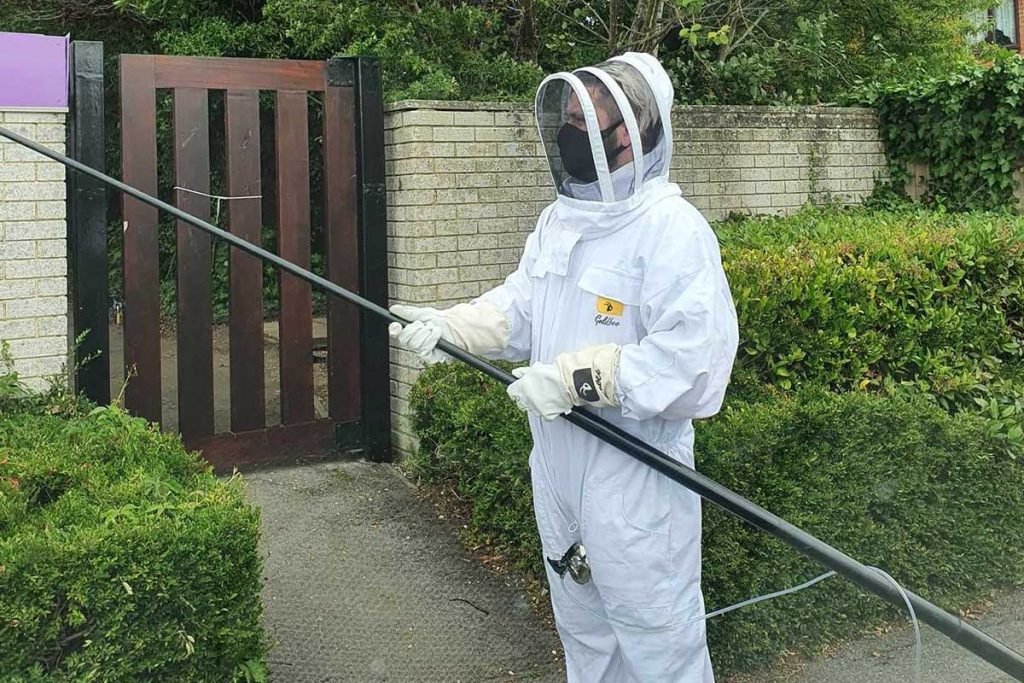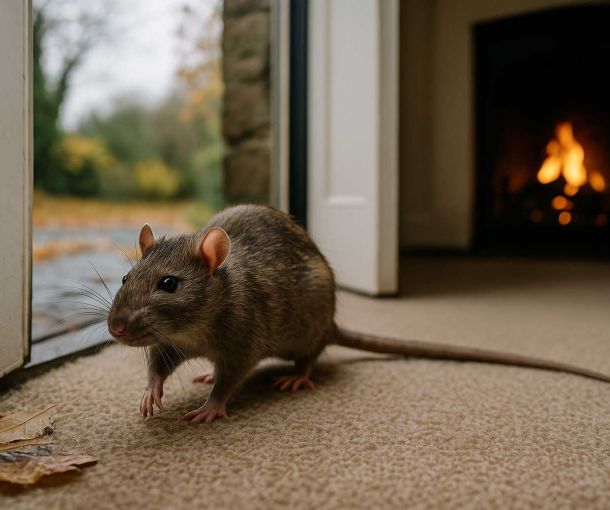What Attracts Rats to Homes in the UK and How to Stop Them

Introduction
Rats are highly opportunistic pests, constantly searching for food, water, and shelter — all often readily available around UK homes. From compost heaps to bird feeders and leaking pipes, seemingly innocent features of your garden can quickly become attractions. In this guide we explain what draws rats into houses in the UK, how to block the invitation, when DIY methods are enough, and when professional support is needed.
We’ll also link to relevant EradiControl content for deeper information and include one trusted external resource from the British Pest Control Association for authoritative guidance.
Why Do Rats Enter UK Homes?
Rats, particularly the brown rat (Rattus norvegicus), are highly adaptable and thrive around human environments. Here’s what draws them in:
1. Easy Food Sources

- Bird feeders and spillage
- Compost heaps
- Pet food left outdoors or unsecured bins
- Fallen fruit or vegetables in gardens
Even small crumbs, grains, or waste left outside can be enough to attract rodents.
2. Safe Shelter & Nesting Sites

- Under decking or garden sheds
- Overgrown vegetation or wood piles
- Gaps in brickwork, air bricks, and pipes
- Lofts, roof voids, basements, and cavity walls
Rats only need a gap the size of a 50p coin to squeeze through. They’re excellent climbers and can scale brickwork, ivy, and drainpipes.
3. Readily Available Water
Rats need regular water access. Leaking taps, gutters, bird baths, garden ponds, and even pet water bowls can serve as a water source.
How to Make Your Home Less Attractive to Rats
Here’s how to make your property unappealing to rodents:
Remove Food Sources
- Clean around bird feeders regularly and use seed catchers
- Store pet food securely indoors
- Keep compost sealed and raised
- Clean up fallen fruit from gardens
- Use tight-fitting wheelie bin lids
Read more tips in our guide:
👉 Top 10 Tips for Rodent Control in Dorset
Eliminate Shelter
- Remove clutter, unused materials, and overgrown foliage
- Use wire mesh under decking or shed floors
- Block burrow entrances as soon as they’re found
Seal Entry Points

- Seal cracks and gaps around doors, air bricks, vents, and drains
- Install brush strips under external doors
- Replace flexible pipework with rigid pipe
- Install fine mesh over vents and drains
If you suspect rats are already inside, visit our Rodent Control page for help.
Remove Water Access

- Fix leaking taps and gutters
- Cover open drains
- Empty unused containers that collect rainwater
- Elevate pet water bowls indoors
Encourage Natural Deterrents
- Use motion-activated lights or water sprinklers
- Remove ivy or plants growing up house walls
- Encourage predators like owls with nesting boxes
- Plant deterrents like mint or allium
Use Eco-Friendly Methods
At EradiControl, we offer Eco-Friendly Pest Control solutions that avoid harsh chemicals and reduce harm to the environment.
When DIY Isn’t Enough
There’s a point when prevention just won’t cut it. If you’re experiencing:
- Frequent rat sightings
- Hearing noises in walls or ceilings at night
- Strong musky odours
- Chewed wires, pipes, or insulation
- Burrows reappearing despite being blocked
… then it’s time to call in the professionals.
We offer both Domestic Pest Control and Emergency Pest Control with rapid response across Dorset, Hampshire and surrounding areas.
Professional Rodent Control That Works
Our expert technicians at EradiControl use:
- Safe, pet-friendly baits and traps
- Proofing services to stop re-entry
- Thermal imaging and inspection tools
- Ongoing monitoring and follow-up
We guarantee complete eradication — and give long-term protection strategies too.

Authoritative External Resource
For more in-depth advice, we recommend the British Pest Control Association’s Rat Control Guide.
Frequently Asked Questions
Look for droppings, scratching sounds at night, greasy marks on walls, or gnaw damage. You may also find burrows or nests in sheds or loft spaces.
Yes. Rats spread diseases such as Leptospirosis, Salmonella, and Weil’s Disease through urine, droppings, and contaminated food surfaces.
Sometimes. But without addressing food, water, and entry points, they often return. Professional pest control offers a more complete solution.
Absolutely. Clean homes can still offer warmth, shelter, and water. Rats are opportunists — if the access is there, they’ll use it.
Very fast. A single female can produce up to 60 offspring per year. That’s why early action is critical.
Prices vary based on severity and property size. Visit our Rodent Control page to request a free quote.
Where to Next?
- Home
-
Domestic Pest Control
-
Commercial Pest Control
-
Eco-Friendly Pest Control
-
Emergency Pest Control
-
Rodent Control
-
Wasp Control
-
Bed Bug Treatment
-
Flea Control
-
Ant Control
-
Cockroach Control
-
Moth Control
-
Fly Control
-
Stored Product Insect Control
-
Spider Control
-
Carpet Beetle Treatment
-
Woodworm Treatment
-
Bird Control
-
Fox Control
-
Squirrel Control
-
Insect Control
-
Booklice Control
- Blog















Leave a Reply